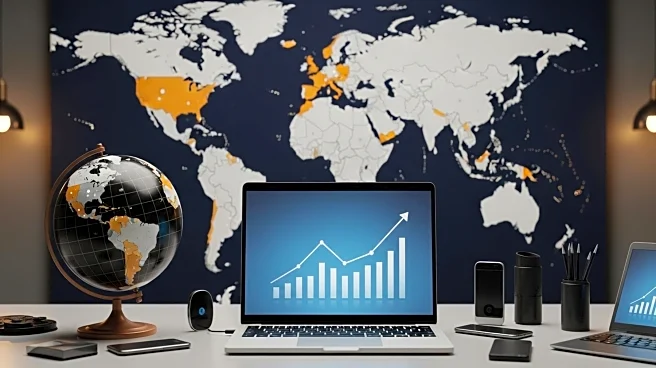What's Happening?
According to IDC, global PC sales have increased by 9.4% in the third quarter of 2025 compared to the same period in 2024. This growth is largely attributed to the transition to Windows 11 and the end-of-support for Windows 10, which has driven hardware refreshes, particularly in Asia. The Asia Pacific region and Europe, the Middle East, and Africa (EMEA) have seen significant growth, each reporting a 14% increase in sales. However, the U.S. market has only seen a modest 1% increase, impacted by import tariffs and macroeconomic uncertainties. Major players like Lenovo, HP, Dell, Apple, and Asus have dominated the market, accounting for over 75% of sales and enjoying the bulk of the growth.
Why It's Important?
The surge in global PC sales indicates a robust demand for newer technology, driven by software transitions and AI capabilities. This trend highlights the importance of technological upgrades in maintaining competitive advantage in the global market. However, the sluggish growth in the U.S. market suggests challenges such as import tariffs and economic uncertainties that could affect domestic technology industries. Companies in the U.S. may need to adapt to these conditions to sustain growth and compete internationally. The dominance of major PC manufacturers underscores the competitive landscape and the need for innovation to capture market share.
What's Next?
IDC predicts continued demand for PCs ready for Windows 11, potentially extending into 2026. This suggests ongoing opportunities for manufacturers to capitalize on software transitions and AI advancements. U.S. companies may need to address tariff impacts and economic challenges to improve domestic sales. The focus on AI-ready PCs could drive further innovation and marketing strategies, influencing consumer purchasing decisions. Stakeholders in the technology sector will likely monitor these trends to align their strategies with evolving market demands.
Beyond the Headlines
The shift towards AI-ready PCs reflects broader technological trends, including the integration of AI into everyday computing. This could lead to long-term changes in how consumers interact with technology and the types of devices they prioritize. The emphasis on AI capabilities may also raise ethical and privacy concerns, prompting discussions on responsible AI use and data security. As technology continues to evolve, these considerations will become increasingly important for manufacturers and consumers alike.








